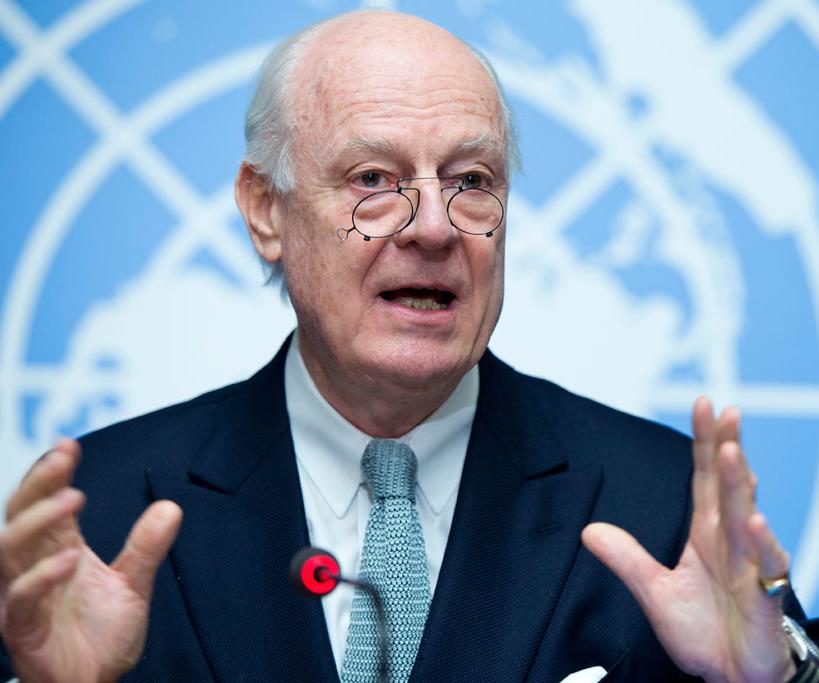 The agenda for the next round of Syria talks in the Kazakh capital Astana was determined in an Aug. 7 meeting in Tehran of the three guarantor countries — Turkey, Iran and Russia — amid expectations that the Astana conference will be held in the last week of August. What is expected from this meeting between the Syrian government and opposition representatives?
The agenda for the next round of Syria talks in the Kazakh capital Astana was determined in an Aug. 7 meeting in Tehran of the three guarantor countries — Turkey, Iran and Russia — amid expectations that the Astana conference will be held in the last week of August. What is expected from this meeting between the Syrian government and opposition representatives?
The answers lie in the two de-escalation zones that have been effective so far. The first was announced in early July in the southwest, covering Daraa, Suwaida and Qunaitra. The second was announced on Aug. 2, covering northern Homs, including Al-Waer neighborhood. The expectation is that there will be a push for de-escalation zones in other parts of Syria.
Negotiators will also discuss a proposal shared by UN envoy Staffan de Mistura. It contains the “four baskets” of transitional governance, a constitutional process, elections and counterterrorism. The conference will discuss which topic to handle first; the Syrian government insists on counterterrorism.
The outcome will have a long-term impact on regional stability, particularly in neighboring Jordan, Turkey and Lebanon, which host the largest numbers of Syrian refugees. The meeting could help stop the spill-over from Syria into these countries, provided that Russia and the US continue to cooperate to expand de-escalation zones. The Astana meeting will also call on all countries not to interfere in Syrian internal affairs and focus on how to rebuild the country.
Previous Astana meetings have successfully bridged some gaps between the Syrian government and the opposition. Let us hope that the upcoming one will do the same.
Despite the failure of previous Geneva talks to stop fighting in various parts of Syria, the government and opposition have agreed 15 evacuation deals that have allowed opposition fighters to safely leave besieged cities and towns for Idlib.
A cease-fire in three southwestern governorates was announced on July 10 shortly after long meetings between Russians and Americans in Jordan, which helped bridge the gap between them. Under the deal, Russian officers are monitoring the cease-fire.
To many analysts, things are moving faster than expected in Syria due to coordination between both superpowers, and a belief among the government and opposition that there has been more than enough fighting. Both parties acknowledge that now is the time to stop the war and open a new page for all Syrians to rebuild their country.
Some opposition leaders have started echoing the government in saying a solution cannot be imposed on Syrians by other countries, particularly since the US said it will no longer push for Bashar Assad to be removed from power. Previous Astana meetings have successfully bridged some gaps between the Syrian government and the opposition. Let us hope that the upcoming one will do the same.
Article published in Arab News: http://www.arabnews.com/node/1142776/columns
Photo credit: UN Photo/Jean-Marc Ferré












